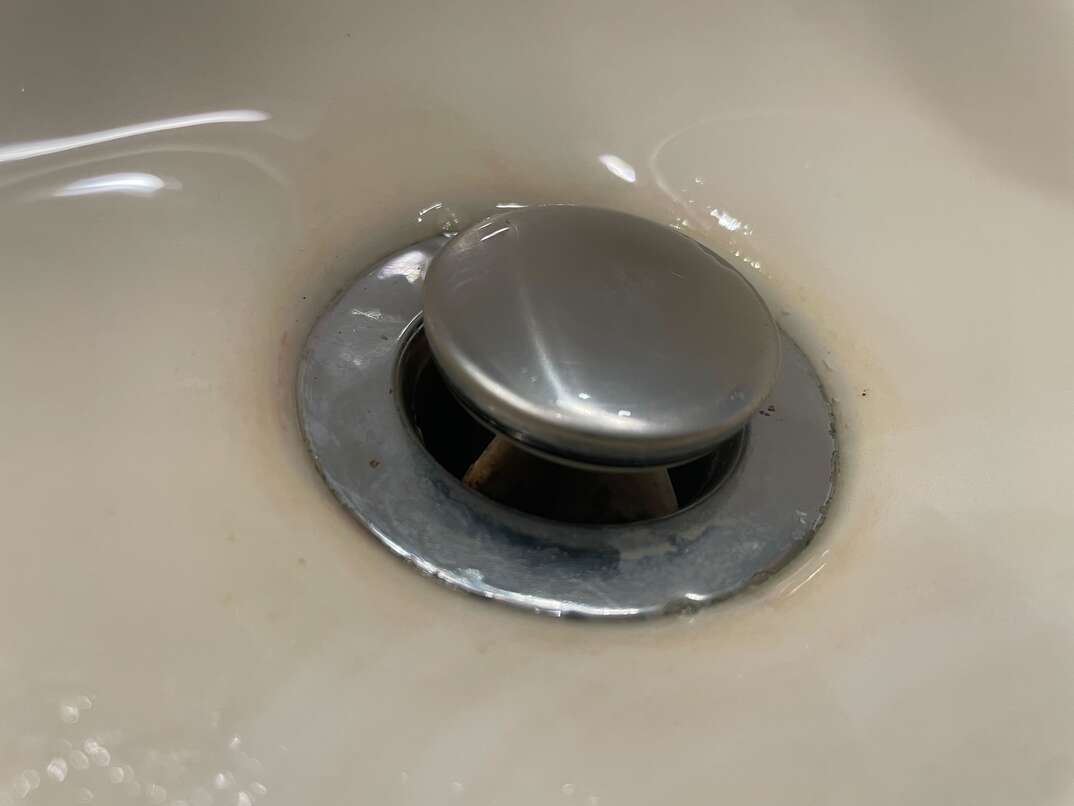- AppliancesElectriciansHVACLandscapingLocksmithPest ControlPlumbingRenovationRoofingT V RepairAll Home Improvement
- Car AccidentClass ActionCorporate LawCriminal DefenseDivorce LawEmployment LawFamily LawFinancial LawLegal AidMedical Injury LawyersMedical MalpracticeReal Estate LawWater Fire RestorationAll Legal
- InvestmentRetirementAll Finance
- Animal InsuranceAutoGeneral InsuranceHealth PolicyHome RentersAll Insurance
- DentalHealth SpecialistsAll Medical
- Animal CareVeterinaryAll Pets
- Auto GlassTowingAll Automotive
Why Do My Drains Smell Bad?

Walking past your sink and catching a whiff of strong odor can definitely be jarring, and the underlying causes of stinky drains can range from minor blockages to serious plumbing issues.
While major plumbing problems such as backed-up sewer pipes require professional intervention, you can often fix smaller problems in a few simple steps.
Drains can smell bad for a number of reasons, from minor clogs and dry P-traps to serious plumbing issues like sewer backups or deep blockages. Here are some common causes of drain odor and solutions on how to get rid of smelly drains in the bathroom and kitchen.
Dry P-Trap
A dry P-trap is one of the most common causes of smelly drains in household sinks. Your P-trap is a U-shaped pipe that sits beneath sinks and toilets and attaches to the other plumbing pipes. The curved pipe is designed to hold a small amount of water at all times, which prevents sewer gases and volatile compounds from traveling through the drain and into your space. If the P-trap is dry, odors can make their way back through the pipes and out the drain, and you may smell rotten eggs or sulfur-like odors.
In most cases, dry P-traps are easy to fix in a DIY fashion. Simply pour water into the sink and bathtub drains to refill the curved pipe. If the P-trap beneath your toilet has run dry, flush the toilet to add more water. If this simple procedure doesn't work, your P-trap may be leaking,or there might be another plumbing issue at play. At this point, you'll want to call a plumber so they can take apart the underlying pipes and further troubleshoot the problem.
Sewer Backup
If your drain smells like sewage, this can indicate a sewer line backup that must be addressed right away. Some additional signs to look out for include water and sewage backup in sinks and tubs, gurgling sounds coming from your pipes and overflowing floor drains.
Blocked or clogged pipes and cracked, damaged pipes are a few common causes of sewer line backups. Sometimes, sewage smells coming from the drains can be due to minor blockages and clogs, creating a sulfur-like odor. However, because sewer line issues can lead to major plumbing problems and pose health risks, it's always better to be safe than sorry.
More Related Articles:
- Calling a Plumber? Here Are the 6 Most Common Plumbing Jobs and How Much They Cost
- 6 Ways to Try to Unclog Your Sink Before You Call a Plumber
- What's in My Plumber's Van?
- Here's How Much It Costs to Remodel a Bathroom
- 6 Tips for Hiring a Plumber
Deep Blockage
In some cases, deep blockages can develop in the underground plumbing that can leave you wondering why your kitchen or bathroom drain smells bad. If you have hard water, sediment buildup on your pipe walls can lead to blockages and other plumbing issues.
Tree root invasion is another serious plumbing matter that can lead to smelly drains. In these cases, underground tree roots make their way into the pipes through tiny holes or cracks.
Once inside, the roots expand and prevent water from flowing in the right direction. When water flow is hindered, organic matter can build up around the blockage, leading to strong odors. In the event of a deep blockage, it's always best to contact a plumber as soon as possible instead of attempting to repair the issue on your own.
Trapped Grease or Food in Garbage Disposal
When something is stuck or built up in your garbage disposal, it can cause strong odors to emit from your kitchen drains. Kitchen grease is a common culprit because it can stick to the disposal blades and build up over time. Food scraps such as banana or potato peels and onion skins should never go into the disposal, as they're known to wrap around the moving blades. Plus, trapped food can serve as a breeding ground for odor-causing bacteria.
If you think your smelly kitchen drain is due to a garbage disposal mishap, you can try to remove blockages with a long pair of tongs. For trapped grease, try pouring a mixture of warm water and grease-cutting dish soap into the disposal and using a toothbrush or dish cleaning brush to clean the blades. It's important to note that you should never place your hands in the disposal or attempt to remove anything while the disposal is running.
If home methods don't work and your drains are still emitting an odor, it's a good idea to call in a professional plumber. They have the tools and equipment to safely remove stubborn disposal blockages, and your plumber can also troubleshoot your drains to check for more serious plumbing issues.
Elocal Editorial Content is for educational and entertainment purposes only. Editorial Content should not be used as a substitute for advice from a licensed professional in your state reviewing your issue. Systems, equipment, issues and circumstances vary. Follow the manufacturer's safety precautions. The opinions, beliefs and viewpoints expressed by the eLocal Editorial Team and other third-party content providers do not necessarily reflect the opinions, beliefs and viewpoints of eLocal or its affiliate companies. Use of the Blog is subject to the
Website Terms and Conditions.The eLocal Editorial Team operates independently of eLocal USA's marketing and sales decisions.

